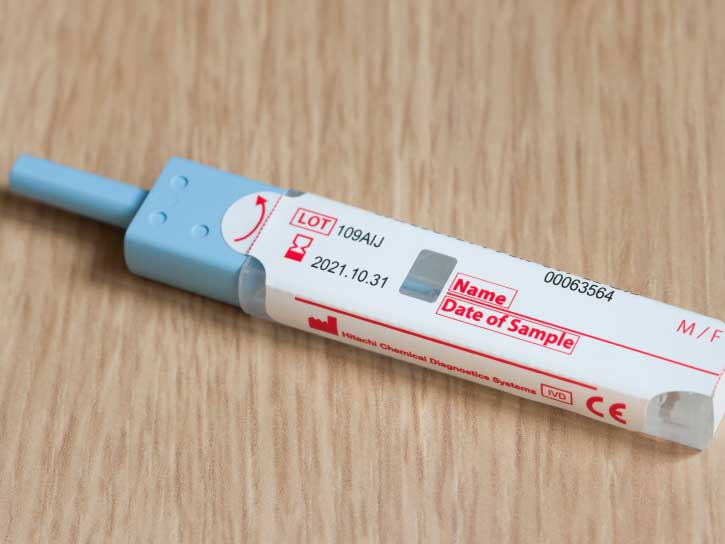Bowel cancer screening test
Bowel cancer screening test

Bowel Cancer Screening Test
Did you know that you can screen for bowel cancer at home?
The National Bowel Cancer Screening program was introduced by the Australian Government in 2006 and was the first program of its kind in the world to use a particular type of test (immunochemical FOBT or iFOBT) instead of the conventional test (guaiac chemical test or gFOBT).
This ground-breaking screening program aims to improve early detection of bowel cancer in Australians. Bowel cancer is currently the second-most common cause of cancer deaths, with a marked increase in incidence in those over age 40, and in particular those with risk factors around increased body weight, poor diet and reduced physical activity.
16 years on and the program is still an important tool in the detection of bowel cancer in Australia.
What is bowel cancer, and why is early detection so important?
Bowel cancer, also known as colorectal cancer, often starts off as a benign growth called a polyp. These are fairly common and usually harmless, but sometimes, if left undetected, they can develop into a cancerous tumour.
There are various types of bowel cancer. Adenocarcinoma is the most common, but there are other, rarer types that can develop, and sometimes, the tumours can also spread to other organs.
Young or old, male or female, anyone can get bowel cancer, and as mentioned above it is the second most deadliest cancer in Australia. There is a higher prevalence of bowel cancer in those over 50 years of age, and other factors may play a part such as your weight, diet, levels of exercise and family history. But here’s the crucial bit.
While bowel cancer is one of the deadliest cancers in Australia, a massive 99% of bowel cancer cases can be treated successfully when detected early.
That’s why it is so important that if you are over 50 and receive a free National Bowel Cancer screening kit in the post that you do the test.
What is the free National Bowel Cancer screening kit?
The National Bowel Cancer screening kit is a kit that all eligible Australians aged between 50 and 74 will receive in the post every two years. You don’t have to be displaying symptoms to do the test (in fact for cases of early detection you may not have any symptoms).
It’s simple to take the test in the comfort of your own home. It requires collecting a faecal sample (that’s poo), putting it a collection tube and sending it back to be analysed. The kit is free, and postage is free as well.
The test is looking for traces of blood in your sample. If you receive a negative result, then no traces of blood were found. If you receive a positive result, then you’ll need to make an appointment with a GP to discuss the next steps.
Can you take a test, even if you aren’t eligible for the free kit?
If you are under 50, or not eligible for the free kit, then you can purchase a kit from a pharmacy for around $30. It is money well-spent to give you peace of mind, and the purchased kits follow the same sample collection process as the free ones.
As with the free kits, if you receive a positive result your next step is to speak to a GP to discuss your options.
Help is available:
As always, your first port of call for help is your GP. A SwiftDoc GP may discuss your options with you, taking into account your own medical circumstances and history. Ideally, you’d get in touch with us as soon as you receive your result, so we can jump on to the next steps as soon as possible. As noted above, early detection does lead to good outcomes in many cases, so a proactive approach is best.
You can also find out more about the free national bowel cancer screening program here.
Sources:
Bowel Cancer Australia, What is Bowel Cancer? Accessed February 2022.
Department of Health, Australian Government. National Bowel Cancer Screening Program. Accessed February 2022.
Public Health Research and Practice, The National Bowel Cancer Screening Program: time to achieve its potential to save lives. Accessed February 2022.